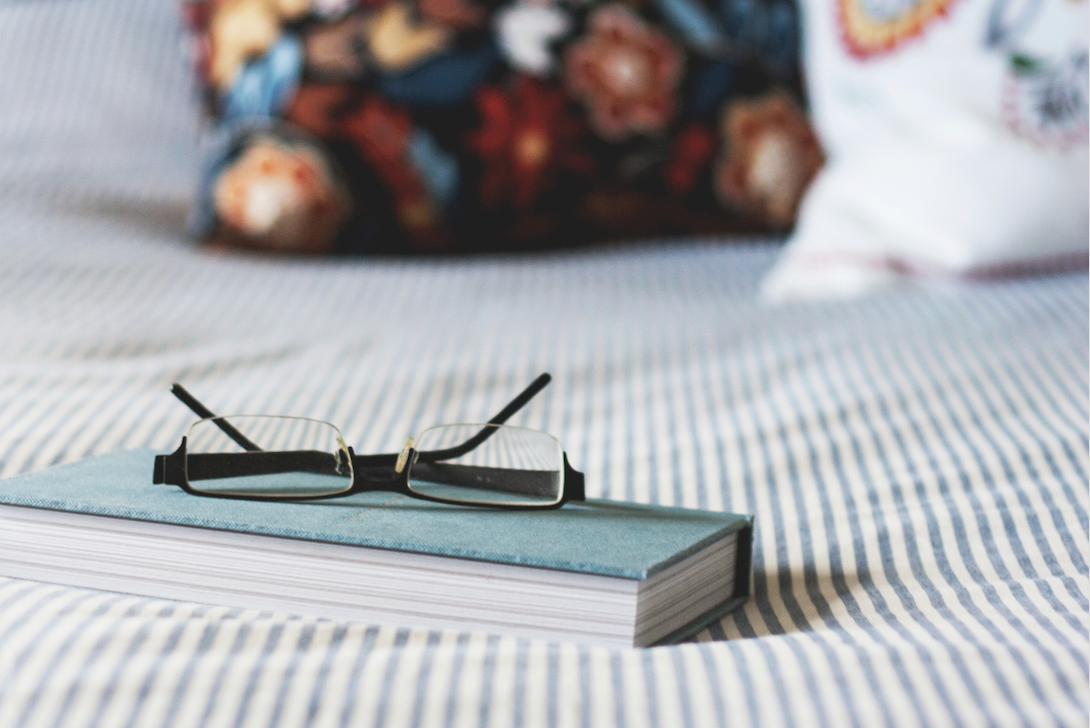Throughout my life, I have always tried to be my personal best. In the early days, I aimed to be the best student, the best teammate, the best daughter and sister. However, as life has gotten more complex, less predictable and more and more full, I’ve found my approach of trying my personal best in every area of my life to be unsustainable. Particularly since becoming a parent, I’ve realized that I cannot always be the best mom, the best wife, the best daughter and the best worker in the same moment. Over time, I’ve needed to find ways to manage my stress and anxiety over the imperfect perfection of balancing parenting with working and family time and friend time and sometimes, just alone time. Managing that stress has become essential to my happiness and wellbeing and is a continual work in progress. In this blog series, I’ll share my lessons and strategies learned so far and the ones I continue to learn along the way.
Topic 1: Sleep is Key!
Laptops and smart phones in our culture are ubiquitous. I, like most, will pick up my phone to look up directions, listen to music, take a photo or video of my son, or actually make a phone call...all within minutes on any given day. The smart phone has made it so easy to not only access information at any time but also to remain socially connected. It allows for easy messaging between me and my husband about when we’ll be home from work and what we’ll make for dinner; I can exchange a quick text with a friend when a lengthy phone call feels impossible; our extended family can share photos of nieces and nephews within seconds of experiencing memorable moments. With all of the conveniences that smart phones offer, it is no wonder that I have my phone with me at all times and if I misplace it, I feel positively lost.
With its constant accessibility, over the years I developed a habit of finishing my nightly bedtime routine and then promptly settling under the covers with my phone in hand to read. As it was time to wind down, I found myself researching parenting techniques for the latest age and stage, scrolling through Tweets and reading articles. And once I felt sufficiently relaxed, I put down my phone, turned off the light on my bedside table and snuggled in for the night.
After following this same routine for a number of years, two patterns began to emerge:
1. I fell asleep fast, but woke up exhausted as my alarm wove its way into my early morning dreams.; OR,
2. I was wide-eyed in the dark, replaying over and over again what I had read, watched or learned minutes before bedtime.
The impact on my days was also not lost on me. I found myself yawning and groggy by mid-day. I often felt anxious and jumpy, my head spinning with thoughts but my body lacking the energy to walk off the stress. And not long after putting my son down to bed for the night, I didn’t have any energy left and I started my nightly routine yet again, falling into the same cycle day, month and year after year.
Having experienced those early parenting days of limited nighttime sleep and high levels of stress and exhaustion, I felt lucky to have a toddler who now generally slept quite soundly and knew that it was really up to me to figure my way to quality sleep to promote both peaceful nights and calmer days. Through my research, I quickly found that poor quality sleep was hardly unique to me. According to the Anxiety and Depression Association of America, eight out of ten adults experience difficulty sleeping and women are significantly more likely to not feel rested after sleep, and have trouble falling and staying asleep. 1 The resulting sleep deprivation can negatively impact memory, judgment and mood and ultimately create a vicious cycle whereby a lack of sleep causes increased stress and then the increased stress leads to an inability to sleep. 2
While there are many factors than can contribute to poor sleep, I found that the blue light from light-emitting devices had significant negative impact on sleep quality. Studies show that blue light can actually suppress melatonin production, a key hormone that influences circadian rhythms that promote sound sleep. 3 Research from a 2014 study found that, individuals who read on light-emitting devices before bedtime had increased alertness before bed, difficulty falling asleep, and less REM sleep. Even more noteworthy is that after eight hours of sleep, those same individuals felt sleepier and took longer to wake up than those who had not been exposed to blue light before bedtime. 4
What a key lesson for me! Even though I was no longer experiencing the sleep deprivation that came with caring for an infant, my own nightly bedtime routine was actually harming my chances for genuinely restful nights and calmer days. Habits are hardly easy to break, but the first step for me in aiming for a better night’s sleep was to put down my phone and instead pick up a good, solid, tried-and-true book. Reading with low light, I find myself more naturally closing my eyes as I read and my thoughts actually slow down as I read one book rather than experiencing the flitting thoughts that come from reading article after article on unrelated topics. I have begun to feel more rested in the morning and have more sustained (and calm!) energy throughout the day.
The search for optimal sleep and decreasing levels of stress is ongoing and removing blue light from my bedtime routine is one step in the right direction for me. For additional strategies and tools to promote sound sleep in your life, check out other articles on the Radiant Life Blog. How have you found your way to optimal sleep? Please share in the comments!


